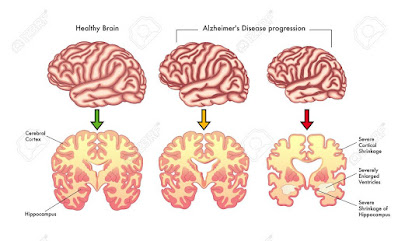COVID-19
The first transmission to humans was in Wuhan, China, since then, the virus has mostly spread through person-to-person contact.
ORIGIN:
The recent outbreak began in Wuhan, a city in the Hubei province of China. Reports of the first Covid-19 cases started in December 2019.
Coronavirus is common in certain species of animals, such a- cattle and camels. Although the transmission of coronavirus from animals to humans is rare, the study suggests pangolins may be the origin.
However, it remains unclear exactly how the virus first spread to humans.
Some reports trace the earliest cases back to a seafood and animal market in Wuhan. It may have been from here that SARS-CoV-2 started to spread to humans.
The CDC recommends that all people wear cloth face masks in public places where it is difficult to maintain a 6-foot(2-meter) distance from others. This will help slow to spread the virus from asymptomatic people and people who do not know that they have contracted it. People should wear cloth face masks while continuing to practice physical distance.
CAUSES:
Infection with the new Coronavirus(severe acute syndrome Coronavirus 2, or SARS-CoV-2) causes Coronavirus disease 2019(COVID-19).
The virus appears to speed easily among people, and more continue to be discovered over time about how it spreads. Data has shown that it spreads from person to person among those in close contact(within about 6 feet, or 2 meters). The virus spreads by respiratory droplets released when someone with the virus coughs, sneezes, or talks. These droplets can e inhaled or land in the mouth or nose of a person nearby.
It can also spread if a person touches a surface with the virus on it and then touches his or her mouth, nose, or eyes, although this is not considered to be the main way it spreads.
RISK FACOR:
Risk factors for COVID-19 appear to include:
- ...Recent travel from or residence in an area with ongoing community spreads of COVID-19 as determined by CDC or WHO.
- ...Close contact(within 6 feet, or 2 meters) with someone who has COVID-19 for more than 5 minutes or being coughed o sneezed on by an infected person.
SARS-CoV-2 spreads from person to person through close communities.
When people with COVID-19 breathe out or cough, they expel tiny droplets that contain the virus. These droplets can enter the mouth or nose of someone without the virus, causing an infection to occur.
The most common way that this illness spreads is tough close contact with someone who has the infection to occur. Close contact is within around 6 feet.
The disease is most contagious when a person's symptoms are at their peak. However, it is possible for someone without symptoms to spread the virus. A new study suggests that 10% of infections are from people exhibiting no symptoms.
Droplets containing the virus can also land on nearby surfaces or objects. Other people can pick up the virus by touching these surfaces or objects. Infection is likely if the person then touches their nose, eyes, or mouth.
It is important to note that COVID-19 is new, and research is still ongoing. There may also be other ways that the news Coronavirus can spread.
EFFECT:
Human Coronavirus(HCoV) accounts for 15-30% of common colds, but only one case report has described the effects of Coronavirus infection, which was asymptomatic, on the human respiratory epithelium.
The effect of infection with HCoV on ciliary structure and function in healthy volunteers infected by intranasal inoculation with HCoV 229E. A further four volunteers were sham infected with the ultraviolet-in activated virus. Immediately before inoculation(day0) and 3 days later(day 3), the ciliated epithelium was obtained by brushing the inferior nasal turbinate ciliary beat frequency determined and beat pattern analyzed evidence dyskinesia(0=normal, 3=severaly dyskinetic) using digital high-speed video photography. Ciliary ultrastructure was examined by transmission electron microscopy. Symptoms diaries were kept for the duration of the day.
SYMPTOMS:
COVID-19 affects different people in different ways. Most infected people will develop mild to moderate-illness and recover without hospitalization.
*Most Common Symptoms:
- Fever
- Dry, Cough
- Tiredness
- Aches and pains
- Sore throat
- Diarrhea
- Conjunctivitis
- Headache
- Headache
- Loss of taste or smell
- A rash on the skin, or discoloration of fingers or toes.
Serious Symptoms:
- Difficulty breathing or shortness of breath.
- Chest pain or pressure.
- Loss of speech or movement.
Seek immediate medical attention if you have serious symptoms. Always call before visiting your doctor or health facility.
People with mild symptoms who are otherwise healthy should manage their symptoms at home.
On average it takes 5-6 days from when someone is infected with the virus for symptoms to show, however it can take up to 14 days.
PREVENTION:
Protect yourself and others around you by knowing the facts and taking appropriate precautions. Follow the advice provided by the local public health agencies.
To prevent the spread of COVID-19
*...Clean your hands often. Use soap and water or an alcohol-based hand rub.
*...Maintain a safe distance from anyone who is coughing or sneezing.
*...Don't touch your eyes, nose, or mouth.
*...Cover your nose and mouth with your bent elbow or a tissue when you cough or sneeze.
*...If you have a fever, cough, and difficulty breathing, seek medical attention. Call in advance.
*...Follow the directions of your local health authority. Avoiding unneeded visits to medical facilities allow healthcare systems to operate more effectively, therefore protecting you and others.
OUTLOOK:
Most people who develop COVID-19 only experience mild symptoms. These symptoms may build up slowly and should go away after a few days.
It is important for anyone who may have COVID-19 to contact their healthcare provider. For those with mild symptoms, call the doctor over the phone for medical advice.
It is essential to contact the emergency services if any of the following symptoms occur:
- Difficulty breathing
- Lasting chest pain or pressure
- Confusion
- A bluish tint to the lips or face
-AKSHITA SRIVASTAVA

























